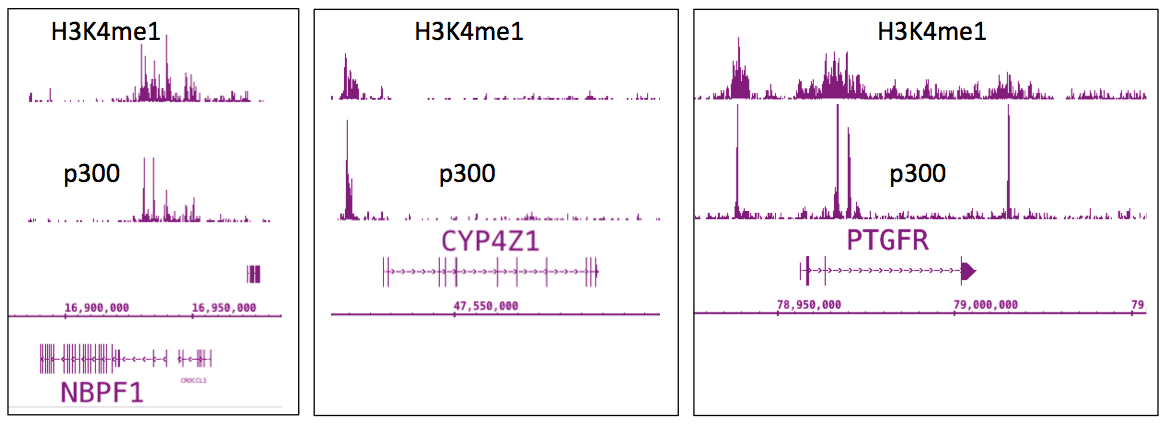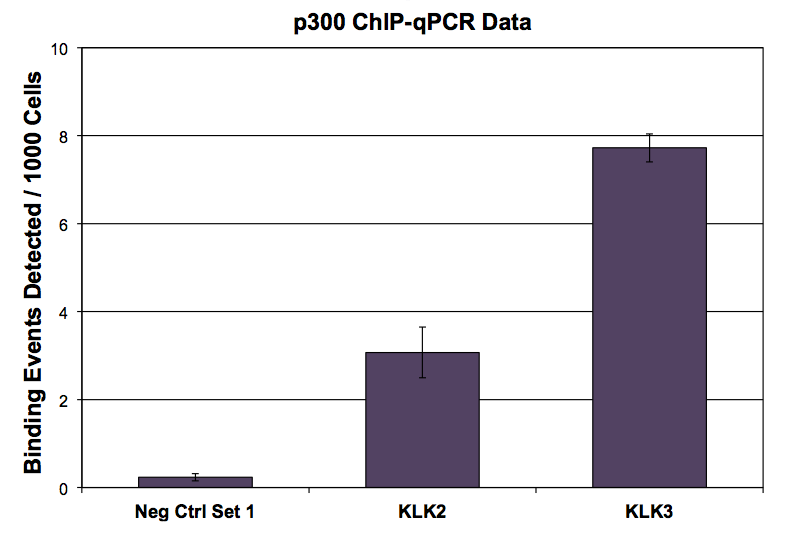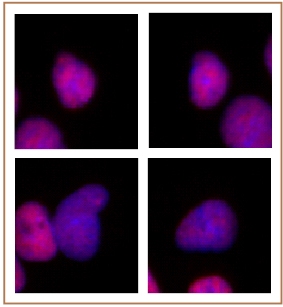p300 antibody (mAb) (Clone NM11)
Host / Isotype
Mouse / IgG1
Reactivity
Human
Applications
ChIP, ChIP-Seq, ICC, IF, IP, WB
CloneNo.
NM11
Cat No : 61401,61402,61903 61401
Synonyms
Validation Data Gallery
Product Information
| Tested Applications |
ChIP, ChIP-Seq, ICC, IF, IP, WB
Applications Validated by Active Motif: ChIP: 5 ug per ChIP ChIP-Seq: 5 ug each ICC/IF: 0.5 ug/ml dilution |
| Tested Reactivity | Human |
| Host / Isotype | Mouse / IgG1 |
| Class | Monoclonal |
| Type | Antibody |
| Immunogen | The antibody was raised against full-length p300 purified from human 293 cells. |
| Full Name | p300 antibody (mAb) (Clone NM11) |
| Synonyms | p300, E1A binding protein p300, RSTS2, KAT3B, E1A-binding protein, 300kD, histone acetyltransferase p300, E1A-associated protein p300, P300, p300 HAT, antibody, monoclonal, mAb, immunoprecipitation, ip, immunofluorescence, if, western blotting, wb, sample |
| Molecular weight | 300 kDa |
| GenBank accession number | NP_001420 |
| RRID | AB_2716754 |
| Purification Method | Protein A Chromatography |
| Buffer | Purified IgG in PBS with 30% glycerol and 0.035% sodium azide. Sodium azide is highly toxic. |
| Storage | Some products may be shipped at room temperature. This will not affect their stability or performance. Avoid repeated freeze/thaw cycles by aliquoting items into single-use fractions for storage at -20°C for up to 2 years. Keep all reagents on ice when not in storage. |
Background Information
p300 (E1A binding protein p300) functions as a histone acetyltransferase and regulates transcription via chromatin remodeling. Acetylates all four core histones in nucleosomes. Histone acetylation gives an epigenetic tag for transcriptional activation. Mediates cAMP-gene regulation by binding specifically to phosphorylated CREB protein. Also functions as an acetyltransferase for nonhistone targets. Acetylates 'Lys-131' of ALX1 and acts as its coactivator in the presence of CREBBP. Acetylates SIRT2 and is proposed to indirectly increase the transcriptional activity of TP53 through acetylation and subsequent attenuation of SIRT2 deacetylase function. Acetylates HDAC1 leading to its inactivation and modulation of transcription. Can also mediate transcriptional repression. Binds to and may be involved in the transforming capacity of the adenovirus E1A protein.



